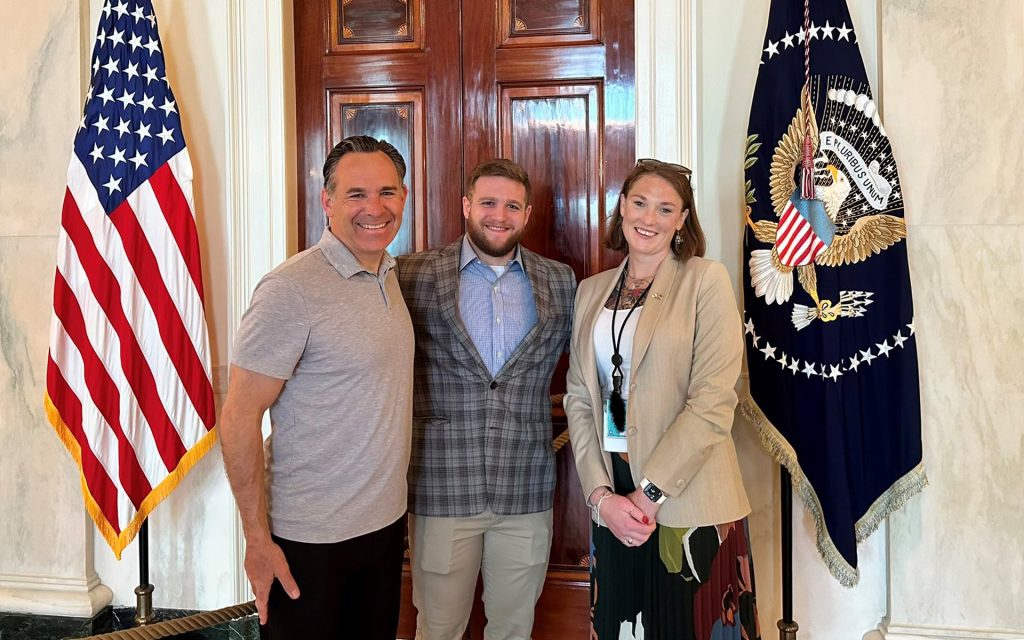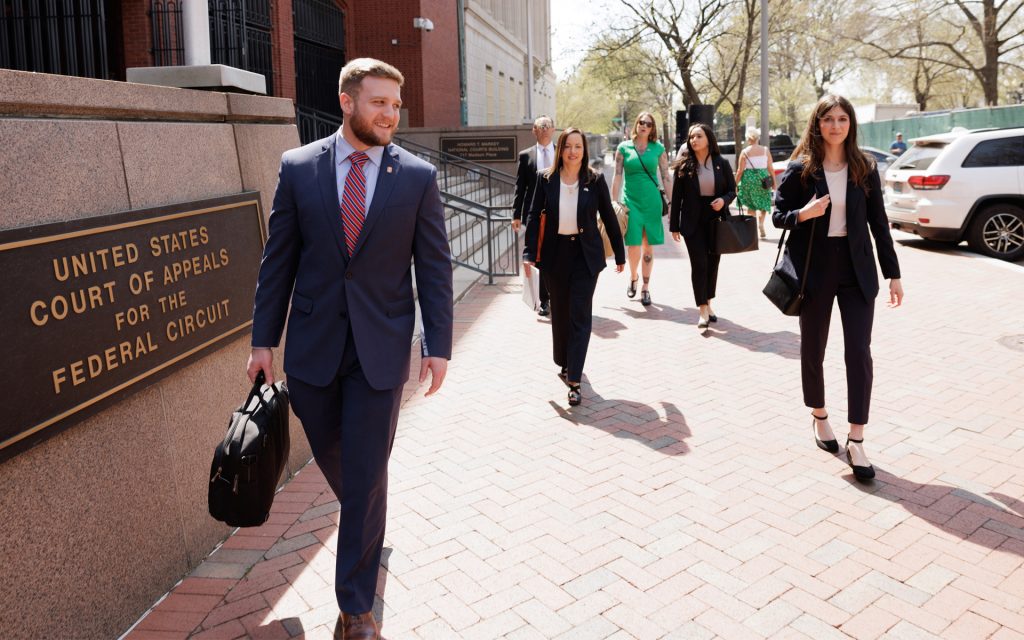
While many law school students learn about appellate advocacy in the classroom or on a mock trial competition team, seven College of Law students recently traveled to Washington, D.C., for an oral argument before a federal court. The students seized the opportunity to apply the skills they learned in their law school experience before a three-judge panel at the U.S. Court of Appeals for the Federal Circuit.
The Executive Director of the Betty and Michael D. Wohl Veterans Legal Clinic (VLC), Professor Beth Kubala, supervised the students along the way and applauded their efforts.
“Participating in a clinic during law school not only affords students an opportunity to work directly with actual clients on important issues, it also gives them invaluable real-world legal experience. The students learned how to navigate a complex appellate process and did so while zealously representing their client.”
Elizabeth G. Kubala, Executive Director of the Betty and Michael D. Wohl Veterans Legal Clinic
Student attorneys in the VLC represented the widow of an Army veteran in her pursuit of survivor benefits. The students initially assisted the widow in appealing this matter through the Army’s administrative process, then through the federal court system.
As the students learned, effective appellate advocacy requires a cohesive litigation team to conduct legal analysis, writing, and advocacy simultaneously. Several students contributed to the litigation team through various roles and tasks.
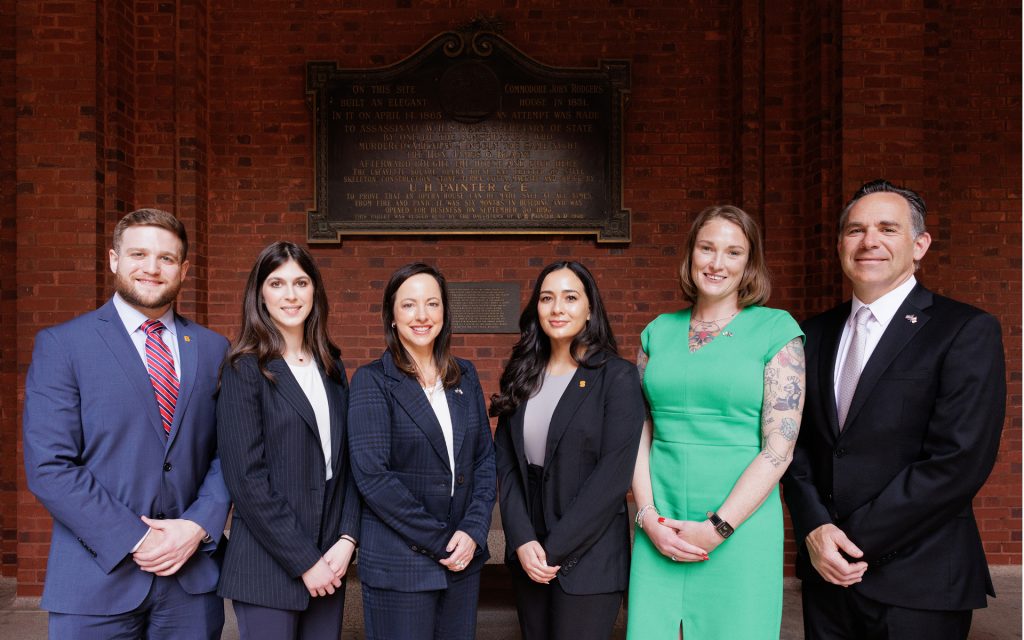
Last summer, VLC student Mike Poggi L’22 took the lead in drafting the appellant’s opening brief. Bill Rielly L’23 and 2L Milana Casillas helped with research, responding to motions, and brief writing and editing. During the summer, as part of clinic case rounds, all students collaborated in reviewing the draft brief, providing feedback, and helping to shape the final submission. Leveraging clinic students for this purpose brought fresh perspectives, objectivity, and ideas for new approaches to challenging issues.
“Under the leadership of Professor Kubala, we cultivated a dynamic work environment that promoted collaboration and efficiency. Her guidance and support were instrumental in helping us navigate the complexities of our case, and she always went above and beyond to ensure that we had the resources and support we needed to succeed. It has been rewarding to work towards our goal with full confidence in one another and with the support of the Syracuse Law.”
2L Milana Casillas
“In the Veterans Legal Clinic, I had the privilege to work with online JDinteractive and residential J.D. students from across the US, collaborating on research, editing, and motion filing for an important case on behalf of a veteran’s widow. This experience culminated in an awesome morning at the United States Appeals Court for the Federal Circuit in Washington D.C., where our lead Syracuse student attorney persuasively argued before the Court,” says Rielly.
In the fall, after receiving the government’s response brief, Ben Emmi L’23 volunteered to draft the appellant’s reply brief to counter matters raised by the Department of Justice. Again, the team mobilized to analyze the government’s approach, refute opposing arguments, and respond appropriately to convince the court that the law supported a finding for the client.
With more than 80 percent of federal appeals decided solely based on written briefs, it came as a bit of a surprise in the spring when the clinic received notice that the Federal Circuit requested an oral argument. Emmi rose to the challenge, narrowing the issues and determining the strongest arguments.
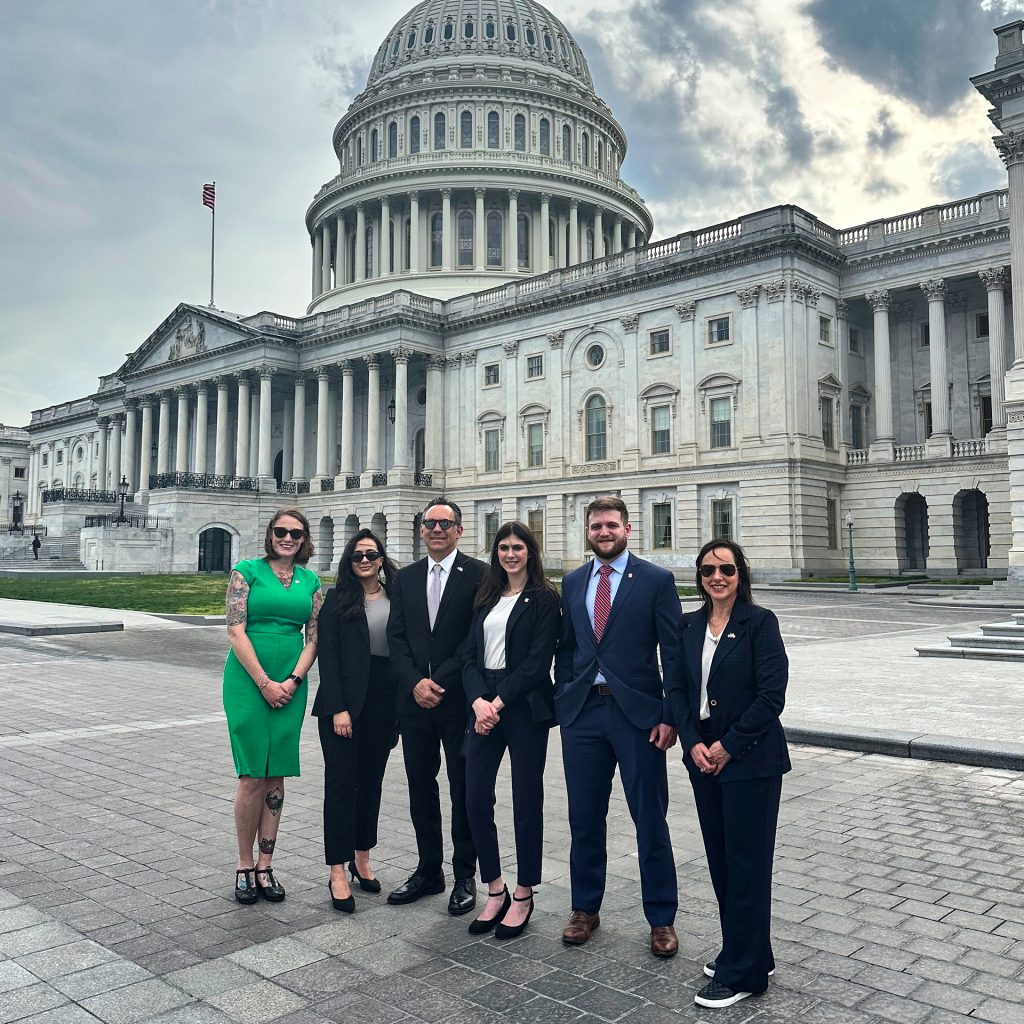
Syracuse Law community members mobilized to hold moot court proceedings to emulate the experience of arguing a case at the appellate level. Professors Shannon Gardner, Courtney Abbot Hill L’09, Kelly Curtis, and Adjunct Professor Dean DiPilato from Mackenzie Hughes donned judicial robes and held two separate moot court sessions where they replicated real court proceedings by asking numerous questions to force Emmi to think on his feet and practice engaging with the bench. During the first moot court session, the entire proceeding was filmed for later use in one of the College’s Appellate Advocacy classes.
Each moot court session helped Emmi refine his knowledge of the facts of the case, practice his opening statement, and expertly frame the issues consistently. The students provided feedback, discussed the strengths and weaknesses of the arguments, and continued to predict the questions the judges would pose.
In early April, a team of students gathered in Washington D.C. for the oral arguments before the U.S. Court of Appeals for the Federal Circuit. Prepared and composed, Emmi confidently appeared before the three-judge panel to emphasize arguments made in the briefs and respond to pointed questions from the judges. The oral argument represented the culmination of 24 months of effort from the entire clinic.
“We were able to put on two moot arguments with the help of Professors Abbott-Hill, Curtis, and Gardner, and Mackenzie Hughes partner, Dean Dipilato. I owe them a huge thank you. They were incredibly dedicated to learning the subject matter and providing me with the most realistic experience possible, not once but twice. As a testament to their judicial prowess, many of their questions during practice came up during the actual argument. I can sum up my argument in front of the Federal Circuit by saying that I wouldn’t have even had such an incredible experience without the support of my peers and Syracuse Law faculty,” says Emmi.
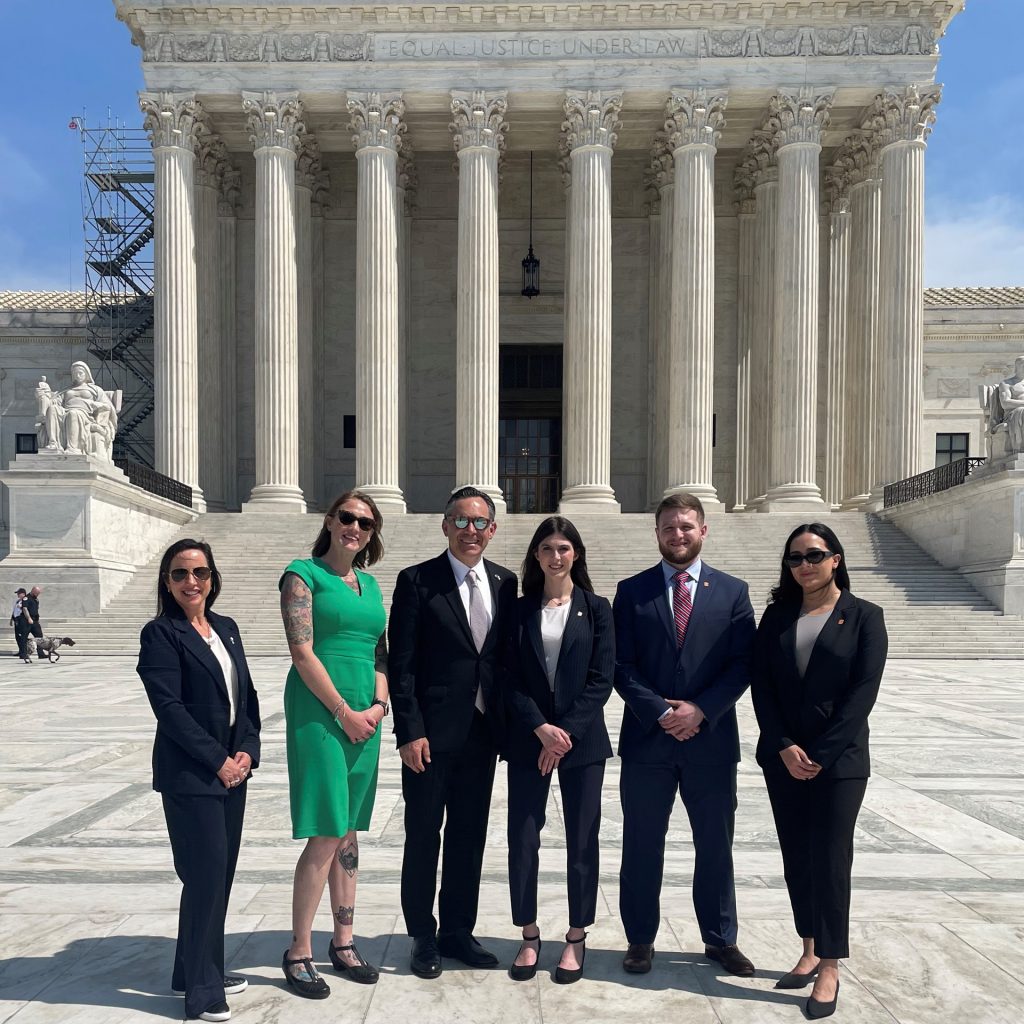
After an outstanding morning in federal court, the students enjoyed engaging with alumni and partners across the nation’s capital. The Marshal of the U.S. Supreme Court gave the students an insider’s view of the courtroom and other historic portions of the building. Bill Van Saun L’19 provided the students with current perspectives from the Senate Committee on Veterans Affairs, where he serves as Legal Counsel. The next day, 2L Cody Nagel hosted students for a tour of the White House, where she currently is interning with the Office of National Drug Control Policy.
